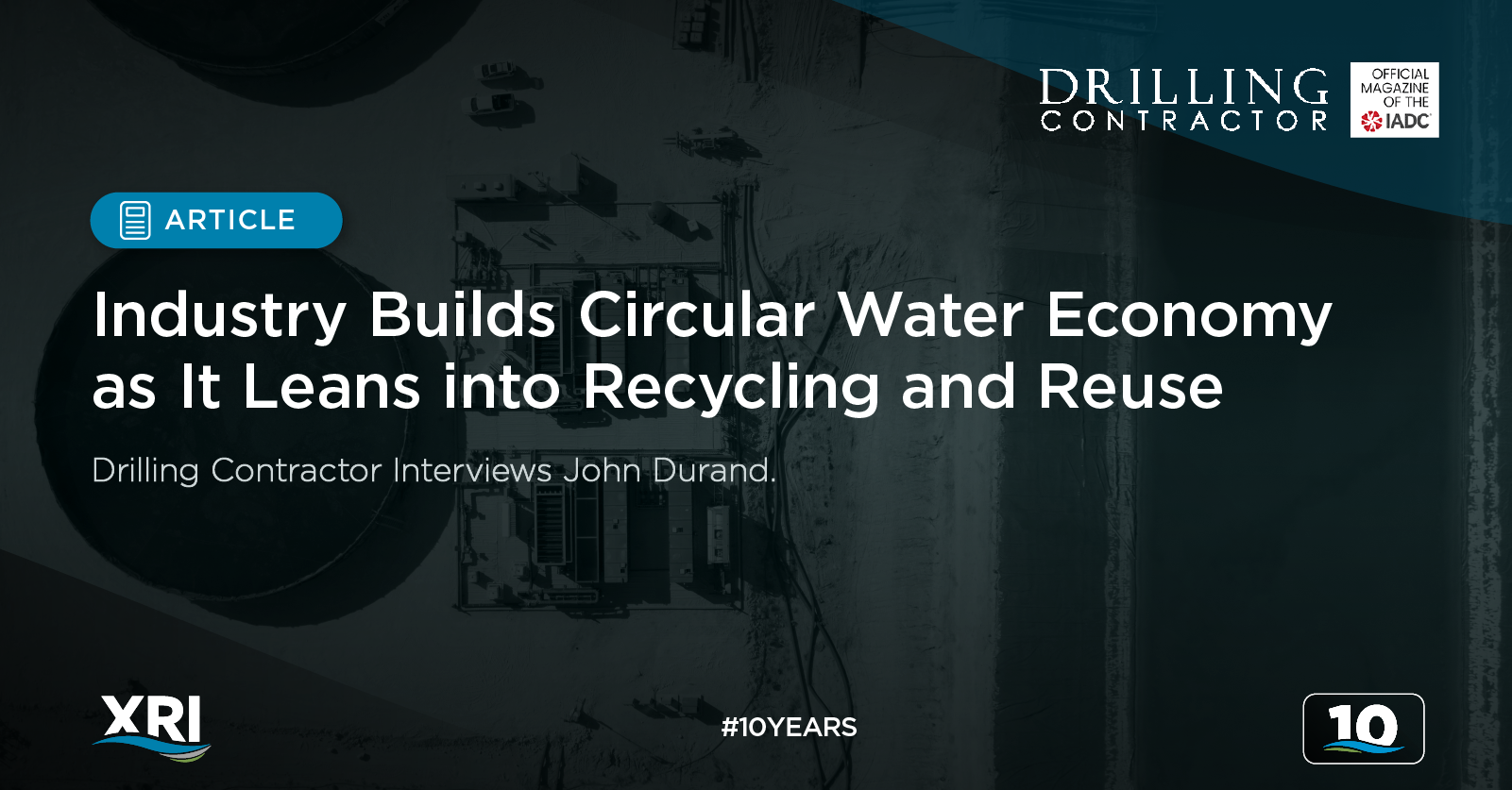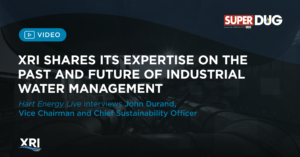Written by Stephen Forrester, Contributor for Drilling Contractor Magazine, and first published by Drilling Contractor Magazine.
Water management companies investing heavily in treatment technologies and transport infrastructure as E&Ps continue to shift away from disposal wells, reduce reliance on freshwater
EXCERPT:
Eliminating freshwater use by expanding water recycling
XRI, a full-cycle water management and produced water midstream company founded in 2013, began installing its first long-distance buried pipeline infrastructure in 2014. In the years since, the company has seen broad growth within the water management sector, said Vice Chairman and Chief Sustainability Officer John Durand. “We’ve been watching as the market has transitioned away from water management as a function largely handled internally by E&P operating companies,” he remarked.
For the industry to continue to advance, Mr Durand said it must wean itself off freshwater. “After the difficult drought situation in West Texas from 2010 to 2015, there surprisingly were not a lot of people dedicated to using non-potable water to serve drilling and completions,” he explained. XRI, however, maintains its philosophy that the E&P sector must transition away from using freshwater for completion activities.
“We believe that the future of produced water and the handling of produced water, in the Permian Basin and elsewhere, must lie in recycling and reuse,” he explained. “There is simply too much water resource being produced, between produced water and flowback, to not lean into efficient and cost-effective water recycling and reuse at scale.” This means a step-change was needed to build a circular water economy based on recycling and reuse, where an injection well would only be the last resort.
To help the industry achieve that change, XRI acquired Fountain Quail Water Management in 2019 and integrated that company’s treatment and recycling capabilities into its existing water distribution midstream infrastructure. Additionally, the company now has approximately 450 miles of permanent, large-diameter buried pipeline infrastructure throughout the Midland and Delaware Basins.
In February, XRI also brought into service the Evolution Pipeline System in the Midland Basin. The system, which is underwritten by long-term contracts with Chevron, XTO Energy and Pioneer, is designed to alleviate overpressurization of deep disposal formations and mitigate seismicity risks throughout the basin. It maximizes produced water recycling and reuse by enabling E&P companies to tap into XRI’s interconnected water distribution networks and large-scale recycling and water treatment facilities.
Establishing an extensive network of pipelines and treatment facilities is a key step to creating that circular economy of water management, which can help to reduce the need to draw from freshwater aquifers.
“What the Evolution Pipeline System allows XRI to do is move approximately 500,000 barrels of water per day from the central Midland Basin — where there remain seismic concerns and defined seismic response areas — down to Reagan County and Uptown counties, where XRI owns and operates full-cycle water infrastructure in the southern portion of the Midland Basin,” Mr Durand explained. “When we move water to those counties, where there’s been minimal disposal injection historically, we are transporting significant water quantities up and down XRI’s pipeline infrastructure, treating the produced water and moving treated recycled water to operators who want to minimize or avoid disposal throughout the basin.” The company is currently developing a similar set of projects in the Delaware Basin.
Further, it also hopes to provide financial incentives for E&P companies to move away from water disposal, by providing treated produced water for its operator clients at a lower cost per barrel than the injection of water into disposal wells. “At XRI, we have always viewed disposal of water as a last resort only, and that philosophy and practice is not going to change,” Mr Durand stated. “It is critical that industry continues to embrace recycle and beneficial reuse as technologies continue to emerge.”
Today, XRI handles almost 1.5 million bbl/day of produced water, which is treated at one of 30 water recycling facilities throughout the Permian Basin. “Disposal avoidance will continue to gain importance as a key metric of success,” he said.
The full article was first published by Drilling Contractor on June 19, 2023 and can be read here.


